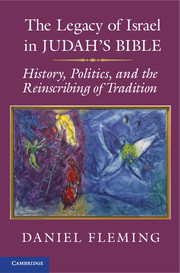Book contents
- Frontmatter
- Contents
- Preface
- Acknowledgments
- List of Abbreviations
- Part I Introduction
- Part II Israelite Content in the Bible
- Part III Collaborative Politics
- 11 Collaborative Politics
- 12 Outside the Near East
- 13 The Amorite Backdrop to Ancient Israel
- 14 Israel's Aramean Contemporaries
- Part IV Israel in History
- Bibliography
- Index of Biblical Texts
- Index of Near Eastern Texts
- Subject Index
12 - Outside the Near East
Published online by Cambridge University Press: 05 August 2012
- Frontmatter
- Contents
- Preface
- Acknowledgments
- List of Abbreviations
- Part I Introduction
- Part II Israelite Content in the Bible
- Part III Collaborative Politics
- 11 Collaborative Politics
- 12 Outside the Near East
- 13 The Amorite Backdrop to Ancient Israel
- 14 Israel's Aramean Contemporaries
- Part IV Israel in History
- Bibliography
- Index of Biblical Texts
- Index of Near Eastern Texts
- Subject Index
Summary
I have said that the Bible preserves rare early written evidence for collaborative political assumptions in the Near East. There is other such evidence, and the rarity of the biblical material has more to do with its literary character than with writing as such. To provide a more immediate context for the biblical tradition of decentralized and associated “tribal” peoples, I will turn to the Amorites and the Arameans, who offer first an essential background and second a contemporary comparison for Israel. Outside the Near East, collective or corporate political forms are classically associated with Greece and Rome, and there is a massive literature on these peoples and their political cultures. These histories are so distinct, however, and the eventual dominance of each political center so overwhelming, that Athenian democracy and republican Rome are not generally part of the broader discussion of collaborative politics. Moreover, the comparative discussion of political forms tends to be the domain of anthropologists, and when early societies are involved, of archaeologists in conversation with anthropology. In the case of ancient Mesoamerica, therefore, while the scale is also impressive, the work has still fallen mainly to the archaeological disciplines.
To locate early Israel in a theoretical landscape of other polities with notable collaborative aspects, and to provide some more concrete notion of the phenomena that inspired analyses by heterarchy or corporate strategy, I review in this chapter a few of the settings in question. Three regions have attracted attention in relation to these questions. Above all, Mesoamerican civilization has been central to the discussion, whether in corporate/network terms, as hierarchy and heterarchy, or otherwise. The scale of the polities involved is massive, as with Teotihuacan, which Blanton et al. present as their ideal case. Explanations for noncentralizing practices and ideas cannot be based here on primitive evolutionary types, as related to bands and tribes. Feinman is invested in the study of the pre-Hispanic American Southwest, where pueblos represent a public interest not evidently driven by rulers or exclusionary power. Crumley works first of all with early European societies, and one study of pre-Viking Denmark offers a thought-provoking comparison for the interaction of monarchy with existing collaborative traditions in early Israel.
- Type
- Chapter
- Information
- The Legacy of Israel in Judah's BibleHistory, Politics, and the Reinscribing of Tradition, pp. 193 - 201Publisher: Cambridge University PressPrint publication year: 2012



